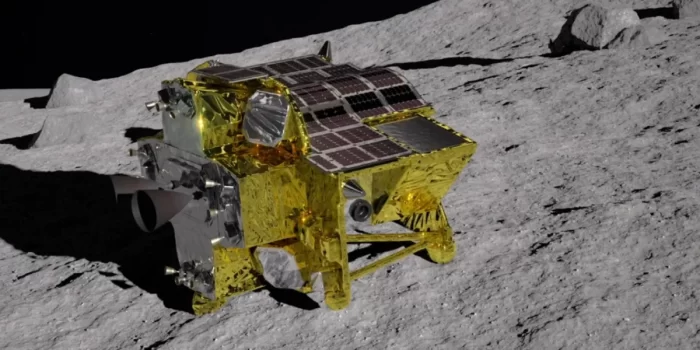According to mission crew members, Japan’s SLIM moon lander has demonstrated its resiliency once more by surviving its second lunar night. Japan became the sixth country to accomplish this accomplishment after the Soviet Union, the United States, China, and India on January 19, when the spacecraft, formally known as the “Smart Lander for Investigating Moon,” made history by successfully landing on the moon.
It was not the best position to be exposed to sunlight when it landed on its nose, but SLIM woke up soon after it went dark. On January 28, the 440-pound (200-kg) lander started up again, carrying out a number of scientific investigations and sending out two small rovers.
Following its successful primary mission objectives, SLIM was put into hibernation before the lunar night, where temperatures plummeted to around minus 208 degrees Fahrenheit (minus 130 degrees Celsius). Despite not being expected to survive the harsh conditions, the lander surprised mission operators by waking up late last month.

While SLIM has demonstrated its resilience, mission team members have noted that the extreme lunar conditions are beginning to affect its functionality. Some temperature sensors and unused battery cells are showing signs of malfunction. However, the majority of its functions have remained operational after the second lunar night, showcasing the durability of the spacecraft.
The successful mission of SLIM adds to the recent successes in lunar exploration, including as the landing of the Odysseus lander, which is being developed and run by Intuitive Machines, a Houston-based startup. The first private spacecraft to land on the moon, Odysseus, ran for a week before coming to a complete stop ahead of its first lunar night.
As SLIM persists in surpassing anticipations and expanding the frontiers of lunar investigation, its voyage bears witness to Japan’s expanding involvement in space exploration and the global progress in space technology.


